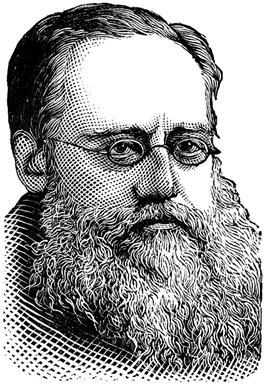Complete Works of Wilkie Collins (914 page)
Read Complete Works of Wilkie Collins Online
Authors: Wilkie Collins
SIXTH EXTRACT.
“The morning after the ball.
“It is done and over. Society has beaten Lady Janet. I have neither patience nor time to write at length of it. We leave for Plymouth by the afternoon express.
“We were rather late in arriving at the ball. The magnificent rooms were filling fast. Walking through them with my wife, she drew my attention to a circumstance which I had not noticed at the time. ‘Julian,’ she said, ‘look round among the lades, and tell me if you see anything strange.’ As I looked round the band began playing a waltz. I observed that a few people only passed by us to the dancing-room. I noticed next that of those few fewer still were young. At last it burst upon me. With certain exceptions (so rare as to prove the rule), there were no young girls at Lady Janet’s ball. I took Mercy at once back to the reception-room. Lady Janet’s face showed that she, too, was aware of what had happened. The guests were still arriving. We received the men and their wives, the men and their mothers, the men and their grandmothers — but, in place of their unmarried daughters, elabourate excuses, offered with a shameless politeness wonderful to see. Yes! This was how the matrons in high life had got over the difficulty of meeting Mrs. Julian Gray at Lady Janet’s house.
“Let me do strict justice to every one. The ladies who
were
present showed the needful respect for their hostess. They did their duty — no, overdid it, is perhaps the better phrase.
“I really had no adequate idea of the coarseness and rudeness which have filtered their way through society in these later times until I saw the reception accorded to my wife. The days of prudery and prejudice are days gone by. Excessive amiability and excessive liberality are the two favorite assumptions of the modern generation. To see the women expressing their liberal forgetfulness of my wifely misfortunes, and the men their amiable anxiety to encourage her husband; to hear the same set phrases repeated in every room — ’So charmed to make your acquaintance, Mrs. Gray; so
much
obliged to dear Lady Janet for giving us this opportunity! — Julian, old man, what a beautiful creature! I envy you; upon my honour, I envy you!’ — to receive this sort of welcome, emphasized by obtrusive hand-shakings, sometimes actually by downright kissings of my wife, and then to look round and see that not one in thirty of these very people had brought their unmarried daughters to the ball, was, I honestly believe, to see civilized human nature in its basest conceivable aspect. The New World may have its disappointments in store for us, but it cannot possibly show us any spectacle so abject as the spectacle which we witnessed last night at my aunt’s ball.
“Lady Janet marked her sense of the proceeding adopted by her guests by leaving them to themselves. Her guests remained and supped heartily notwithstanding. They all knew by experience that there were no stale dishes and no cheap wines at Mablethorpe House. They drank to the end of the bottle, and they ate to the last truffle in the dish.
“Mercy and I had an interview with my aunt upstairs before we left. I felt it necessary to state plainly my resolution to leave England. The scene that followed was so painful that I cannot prevail on myself to return to it in these pages. My wife is reconciled to our departure; and Lady Janet accompanies us as far as Plymouth — these are the results. No words can express my sense of relief, now that it is all settled. The one sorrow I shall carry away with me from the shores of England will be the sorrow of parting with dear, warm-hearted Lady Janet. At her age it is a parting for life.
“So closes my connection with my own country. While I have Mercy by my side I face the unknown future, certain of carrying my happiness with me, go where I may. We shall find five hundred adventurers like ourselves when we join the emigrant ship, for whom their native land has no occupation and no home. Gentlemen of the Statistical Department, add two more to the number of social failures produced by England in the year of our Lord eighteen hundred and seventy-one — Julian Gray and Mercy Merrick.”

Published in 1875, this largely forgotten novel is a detective story.
It tells the tale of Valeria Brinton, who marries Eustace Woodville despite objections from Woodville’s family leading to disquiet for Valeria’s own family and friends.

THE LAW AND THE LADY
CONTENTS
CHAPTER I. THE BRIDE’S MISTAKE.
CHAPTER II. THE BRIDE’S THOUGHTS.
CHAPTER V. THE LANDLADY’S DISCOVERY.
CHAPTER VII. ON THE WAY TO THE MAJOR.
CHAPTER VIII. THE FRIEND OF THE WOMEN.
CHAPTER IX. THE DEFEAT OF THE MAJOR.
CHAPTER XI. THE RETURN TO LIFE.
CHAPTER XII. THE SCOTCH VERDICT.
CHAPTER XIII. THE MAN’S DECISION.
CHAPTER XIV. THE WOMAN’S ANSWER.
CHAPTER XV. THE STORY OF THE TRIAL. THE PRELIMINARIES.
CHAPTER XVI. FIRST QUESTION — DID THE WOMAN DIE POISONED?
CHAPTER XVII. SECOND QUESTION — WHO POISONED HER?
CHAPTER XVIII. THIRD QUESTION — WHAT WAS HIS MOTIVE?
CHAPTER XIX. THE EVIDENCE FOR THE DEFENSE.
CHAPTER XX. THE END OF THE TRIAL.
CHAPTER XXII. THE MAJOR MAKES DIFFICULTIES.
CHAPTER XXIV. MISERRIMUS DEXTER — FIRST VIEW.
CHAPTER XXV. MISERRIMUS DEXTER — SECOND VIEW
CHAPTER XXVI. MORE OF MY OBSTINACY.
CHAPTER XXVII. MR. DEXTER AT HOME.
CHAPTER XXX. THE INDICTMENT OF MRS. BEAULY.
CHAPTER XXXI. THE DEFENSE OF MRS. BEAULY.
CHAPTER XXXII. A SPECIMEN OF MY WISDOM.
CHAPTER XXXIII. A SPECIMEN OF MY FOLLY.
CHAPTER XXXV. MR. PLAYMORE’S PROPHECY.